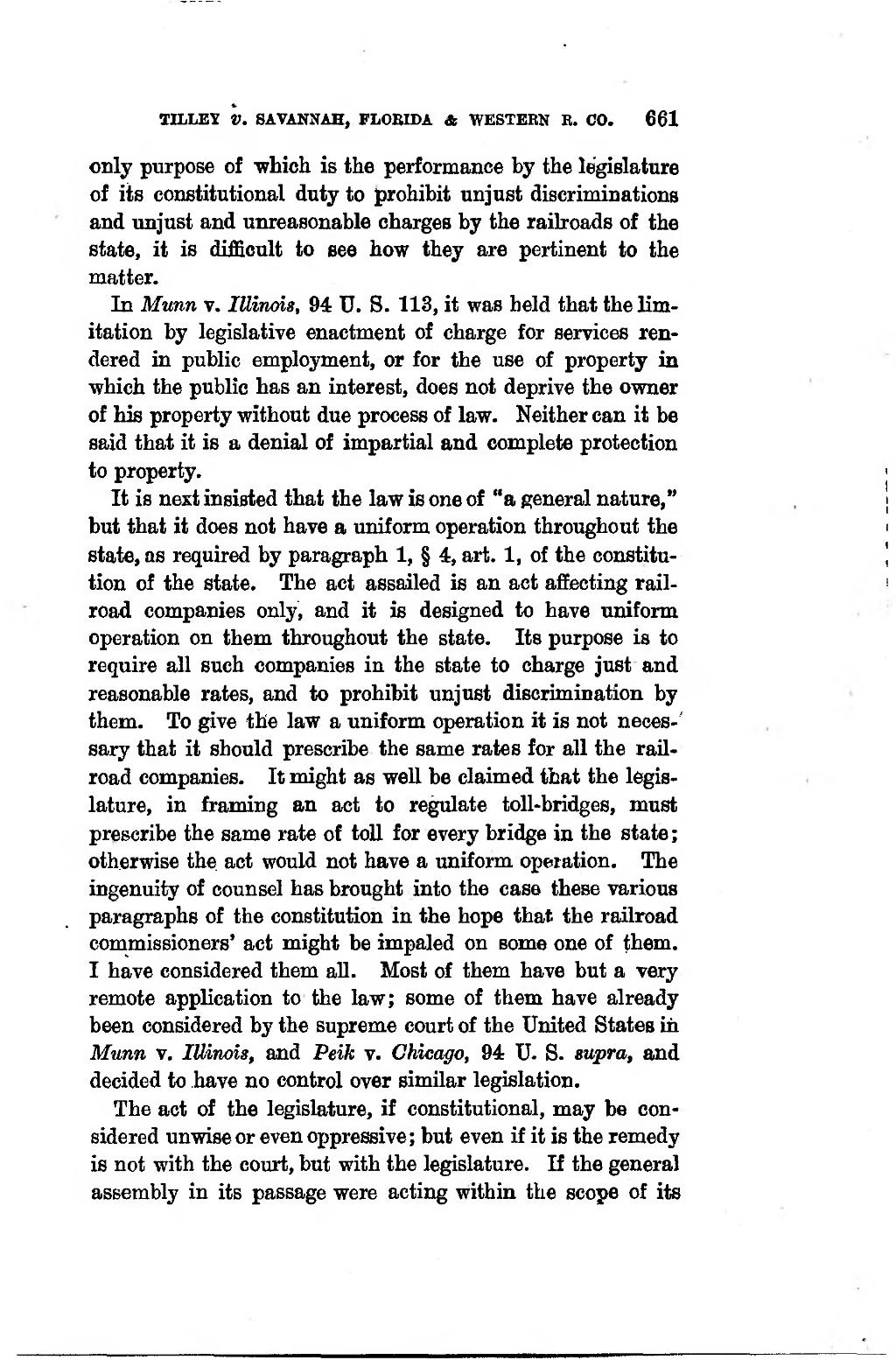TILLEY V. SAVANNAH, FLOEIDA Se WESTERN R. CO. 661 �only purpose of -which is the performance by the legislature of its constitutional duty to prohibit unjust discriminations and unjust and unreasonable charges by the railroads of the state, it is difficalt to aee how they are pertinent to the matter. �In Munn v. Illinois, 94 U. S. 113, it was held that the lim- itation by legislative enactment of charge for services ren- dered in public employment, or for the use of property in which the public bas an interest, does not deprive the owner of his property without due process of law. Neither can it be said that it is a deniai of impartial and complete protection to property. �It is next insisted that the law is one of "a general nature," but that it does not bave a uniform operation throughout the state, as required by paragraph 1, § 4, art. 1, of the constitu- tion of the state. The act assailed is an act affecting rail- road companies only, and it is designed to have uniform operation on them throughout the state. Its purpose is to require all such companies in the state to charge just and reasonable rates, and to prohibit unjust discrimination by them. To give the law a uniform operation it is not neces- sary that it should presoribe the same rates for all the rail- road companies. It might as well be claimed that the legis- lature, in framing an act to regulate toU-bridges, must prescribe the same rate of toll for every bridge in the state; otherwise the act would not bave a uniform operation. The ingenuity of counsel bas brought into the case these varions paragraphs of the constitution in the hope that the railroad commissioners' act might be impaled on some one of them. I have considered them ail. Most of them bave but a very remote application to the law; some of them have already been considered by the supreme court of the United States in Munn V. lUinois, and Peik v. Chicago, 94 U. S. supra, and decided to bave no control over similar legislation. �The act of the legislature, if constitutional, may be con- sidered unwise or even oppressive ; but even if it is the remedy is not with the court, but with the legislature. If the general assembly in its passage were acting within the scope of its ����
